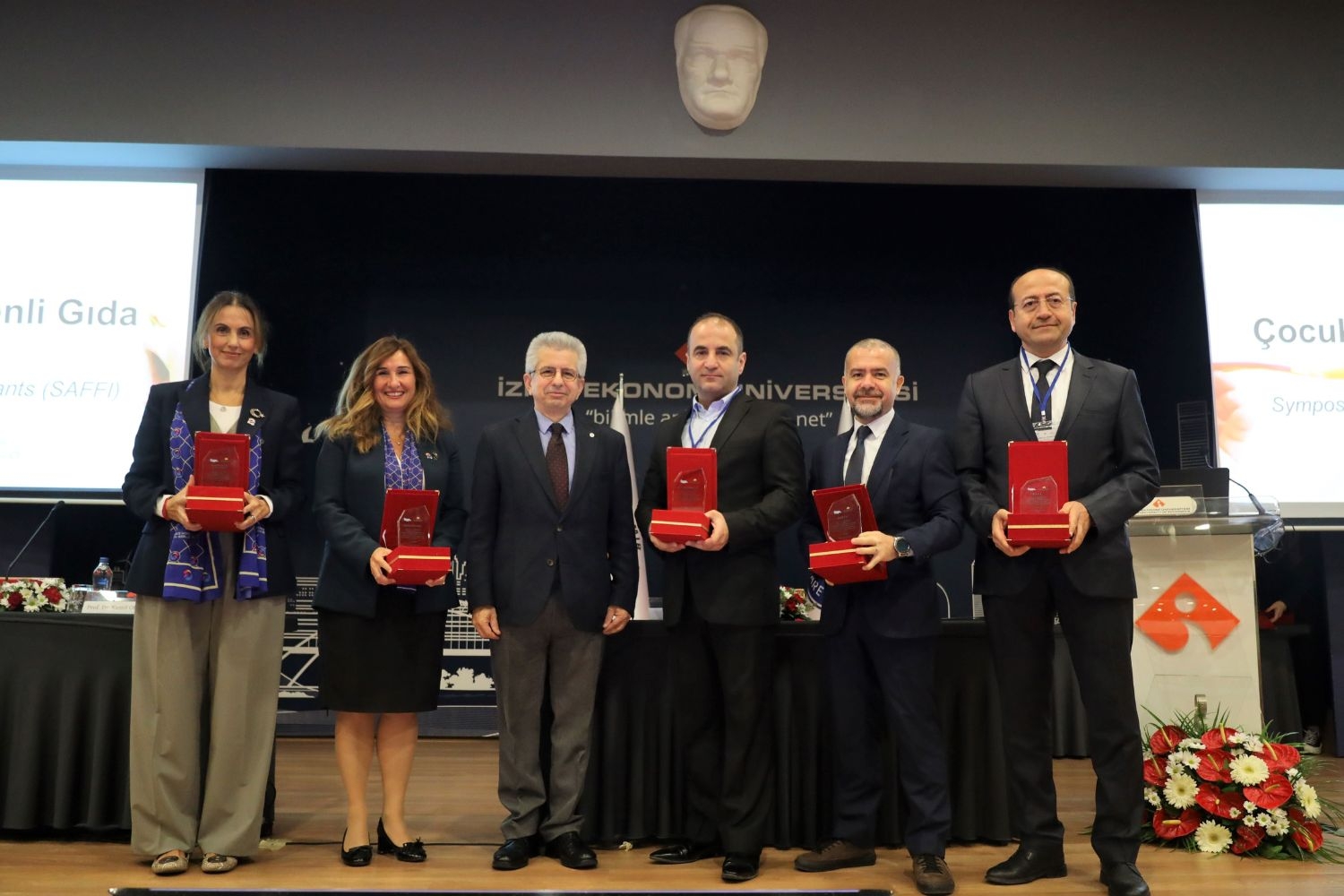
...

...
VOCATIONAL SCHOOL OF HEALTH SERVICES
Department of Child Development| Course Name |
Turkish
|
|
Code
|
Semester
|
Theory
(hour/week) |
Application/Lab
(hour/week) |
Local Credits
|
ECTS
|
|
TRK 100
|
Spring
|
4
|
0
|
4
|
4
|
| Prerequisites |
None
|
|||||
| Course Language |
Turkish
|
|||||
| Course Type |
Required
|
|||||
| Course Level |
Short Cycle
|
|||||
| Mode of Delivery | - | |||||
| Teaching Methods and Techniques of the Course | DiscussionQ&ALecture / Presentation | |||||
| National Occupation Classification | - | |||||
| Course Coordinator | ||||||
| Course Lecturer(s) | ||||||
| Assistant(s) | - | |||||
| Course Objectives | The objective of this course is to show the students characteristics and rules of Turkish Language through examples; make them achieve the habit and skill of showing their emotions, thoughts, plans, impressions, observations, and experiences efficiently in writing and verbally; develop their vocabulary with the help of written and verbal texts; teach them the rules of comprehending the texts they read or programs they listen to accurately; develop their language skills which form the basis of the communication between individuals and populace. |
| Learning Outcomes |
The students who succeeded in this course;
|
| Course Description | Students will be taught how to use the written and verbal communication tools accurately and efficiently in this course. Various types of verbal and written statements will be examined through a critical point of view by doing exercises on understanding, telling, reading, and writing. Punctuation and spelling rules, which are basis of written statement, will be taught and accurate usage of these rules for efficient and strong expression will be provided. As for verbal statement, students will be taught how to use the body language, use accent and intonation elaborately, and use presentation techniques. |
| Related Sustainable Development Goals |
|
|
Core Courses | |
| Major Area Courses | ||
| Supportive Courses | ||
| Media and Management Skills Courses | ||
| Transferable Skill Courses |
| Week | Subjects | Related Preparation |
| 1 | Communication (Elements of Communication) | Yakıcı, A., Yücel, M., (...)& Yelok,S. (2010). Türk Dili ve Kompozisyon Bilgileri, Yargı Publishing house, Ankara, p. 1-16 |
| 2 | Languages in the Wold and the Place of Turkish among World Languages | Yakıcı, A., Yücel, M., (...)& Yelok,S. (2010). Türk Dili ve Kompozisyon Bilgileri, Yargı Publishing house, Ankara, p. 39-44 |
| 3 | Languages in the World and the Place of Turkish among World Languages | Yakıcı, A., Yücel, M., (...)& Yelok,S. (2010). Türk Dili ve Kompozisyon Bilgileri, Yargı Publishing house, Ankara, p. 45-76 |
| 4 | Culture and Cultural Elements | Yakıcı, A., Yücel, M., (...)& Yelok,S. (2010). Türk Dili ve Kompozisyon Bilgileri, Yargı Publishing house, Ankara,p. 18-38 |
| 5 | Writing Rules (Correctional Mark, Writing Some Words and Attachments, Where Lowercase Letters Are Used, Where Capital Letters Are Used) | Yakıcı, A., Yücel, M., (...)& Yelok,S. (2010). Türk Dili ve Kompozisyon Bilgileri, Yargı Publishing house, Ankara, p. 147-165 |
| 6 | Writting And Rules Of Punctuation Marks (Spelling of compound words, spelling of idioms, spelling of dilemmas, spelling of common words, spelling of foreign nouns) | Yakıcı, A., Yücel, M., (...)& Yelok,S. (2010). Türk Dili ve Kompozisyon Bilgileri, Yargı Publishing house, Ankara, p. 170-175 |
| 7 | Punctuation Marks | Yakıcı, A., Yücel, M., (...)& Yelok,S. (2010). Türk Dili ve Kompozisyon Bilgileri, Yargı Publishing house, Ankara, p. 177-194 |
| 8 | Composition and Forms of Expression | Yakıcı, A., Yücel, M., (...)& Yelok,S. (2010). Türk Dili ve Kompozisyon Bilgileri, Yargı Publishing house, Ankara, p. 229-243 |
| 9 | Types of Writing (Official "Formal" Articles: Petition, Record, Decision) | Yakıcı, A., Yücel, M., (...)& Yelok,S. (2010). Türk Dili ve Kompozisyon Bilgileri, Yargı Publishing house, Ankara,, p. 245-262 |
| 10 | Writing Types (Official "Formal" Articles: Report, Business Letters, CV) | Yakıcı, A., Yücel, M., (...)& Yelok,S. (2010). Türk Dili ve Kompozisyon Bilgileri, Yargı Publishing house, Ankara, p. 264-292 |
| 11 | Types of Writing: Articles Transmitting Thoughts and Information: Clause, Article, Criticism, Essay, Letter…) | Yakıcı, A., Yücel, M., (...)& Yelok,S. (2010). Türk Dili ve Kompozisyon Bilgileri, Yargı Publishing house, Ankara, p. 357-404 |
| 12 | Types of Oral Expression (Open session, Symposium, Panel, Forum, Colloquium) | Yakıcı, A., Yücel, M., (...)& Yelok,S. (2010). Türk Dili ve Kompozisyon Bilgileri, Yargı Publishing house, Ankara, p. 441-446 |
| 13 | Types of Oral Expression (Conference, Discourse) | Yakıcı, A., Yücel, M., (...)& Yelok,S. (2010). Türk Dili ve Kompozisyon Bilgileri, Yargı Publishing house, Ankara, p. 446-464 |
| 14 | SCIENTIFIC RESEARCH AND EFFECTIVE PRESENTATION TECHNIQUES (Scientific Research) | Yakıcı, A., Yücel, M., (...)& Yelok,S. (2010). Türk Dili ve Kompozisyon Bilgileri, Yargı Publishing house, Ankara,p. 465-480 |
| 15 | Semester Review | |
| 16 | Final Sınavı |
| Course Notes/Textbooks | Yakıcı, A., Yücel, M., (...)&Yelok,S. (2010). Türk Dili ve Kompozisyon Bilgileri, Yargı Publishing house, Ankara. |
| Suggested Readings/Materials | Korkmaz, Z. (2003). Türk Dili ve Kompozisyon Bilgileri, 6. Baskı, Ankara:YargıYayınevi.. Önen,A. (2007). Türkçeyi Türkçe Konuşmak, İnkılap Yayınevi, İstanbul.
|
| Semester Activities | Number | Weigthing |
| Participation | ||
| Laboratory / Application | ||
| Field Work | ||
| Quizzes / Studio Critiques |
2
|
30
|
| Portfolio | ||
| Homework / Assignments | ||
| Presentation / Jury | ||
| Project | ||
| Seminar / Workshop | ||
| Oral Exams | ||
| Midterm |
1
|
30
|
| Final Exam |
1
|
40
|
| Total |
| Weighting of Semester Activities on the Final Grade |
3
|
60
|
| Weighting of End-of-Semester Activities on the Final Grade |
1
|
40
|
| Total |
| Semester Activities | Number | Duration (Hours) | Workload |
|---|---|---|---|
| Theoretical Course Hours (Including exam week: 16 x total hours) |
16
|
4
|
64
|
| Laboratory / Application Hours (Including exam week: '.16.' x total hours) |
16
|
0
|
|
| Study Hours Out of Class |
13
|
2
|
26
|
| Field Work |
0
|
||
| Quizzes / Studio Critiques |
2
|
3
|
6
|
| Portfolio |
0
|
||
| Homework / Assignments |
0
|
||
| Presentation / Jury |
0
|
||
| Project |
0
|
||
| Seminar / Workshop |
0
|
||
| Oral Exam |
0
|
||
| Midterms |
1
|
12
|
12
|
| Final Exam |
1
|
16
|
16
|
| Total |
124
|
|
#
|
Program Competencies/Outcomes |
* Contribution Level
|
|||||
|
1
|
2
|
3
|
4
|
5
|
|||
| 1 |
To have the required contemporary theoretical and practical knowledge in his/her field |
-
|
-
|
-
|
-
|
-
|
|
| 2 |
To use the material and technology related to his/her field, and make their maintenance, use the information and communication technologies at basic level |
-
|
-
|
-
|
-
|
-
|
|
| 3 |
To have the competency to recognize the problems in his/her field, analyze them, develop evidence-based solutions and have the ability to share their suggestions with others |
-
|
-
|
-
|
-
|
-
|
|
| 4 |
To be aware of legal responsibilities, conduct basic studies in her/his field independently |
-
|
-
|
-
|
-
|
-
|
|
| 5 |
To communicate with patients, relatives and colleagues properly, comprehensively, honestly and explicitly, transfer his/her thoughts and knowledge through written and oral communication |
-
|
-
|
-
|
-
|
X
|
|
| 6 |
To take responsibility as an active team member during the practices in his/her field |
-
|
-
|
-
|
-
|
-
|
|
| 7 |
To commentate and evaluate the scientific information with a critical approach by the help of knowledge gained in his/her field |
-
|
-
|
-
|
-
|
-
|
|
| 8 |
To comprehend the importance of lifelong learning, to determine and meet her/his learning needs, to develop herself/himself by monitoring the development in science and technology |
-
|
-
|
-
|
X
|
-
|
|
| 9 |
To act by considering the universal ethical values, social and cultural characteristics |
-
|
-
|
-
|
-
|
-
|
|
| 10 |
To know the concepts of occupational safety, patient safety, environmental protection and quality, and fulfill the requirements |
-
|
-
|
-
|
-
|
-
|
|
| 11 |
To be able to follow information in his field and communicate with colleagues in English at least a level of European Language Portfolio A2 General Level |
-
|
-
|
-
|
-
|
-
|
|
| 12 |
To have the skills of improving the development and learning of children with special needs |
-
|
-
|
-
|
-
|
-
|
|
| 13 |
To plan and carry out activities for development of people under their responsibility |
-
|
-
|
-
|
-
|
-
|
|
*1 Lowest, 2 Low, 3 Average, 4 High, 5 Highest

...

...

As Izmir University of Economics transforms into a world-class university, it also raises successful young people with global competence.
More..Izmir University of Economics produces qualified knowledge and competent technologies.
More..Izmir University of Economics sees producing social benefit as its reason for existence.
More..